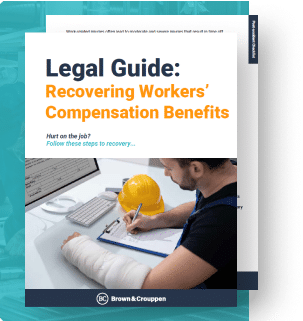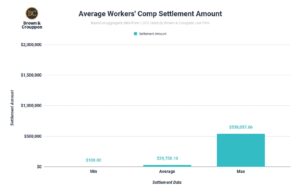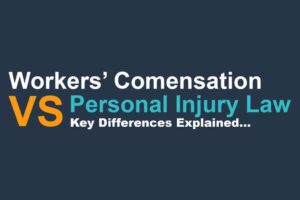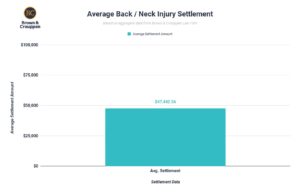
Use our guide to make a full recovery, understand the workers’ comp process, and learn about key legal considerations regarding your claim.
HOW MAXIMUM MEDICAL IMPROVEMENT (MMI) IS DETERMINED
The determination of MMI is typically made by a qualified healthcare provider, such as a physician. They evaluate the worker’s medical condition, review medical records, and conduct necessary examinations.
Once they conclude that the worker has achieved maximum medical improvement, they provide a report outlining the worker’s current condition and any residual impairments.
THE ROLE OF MMI IN WORKERS’ COMPENSATION SETTLEMENTS
MMI plays a significant role in a workers’ compensation settlement. When an injured worker reaches MMI, it serves as a benchmark for evaluating the extent of their permanent impairment and calculating compensation.
The compensation awarded at this stage often takes into account factors like the severity of the injury, the worker’s age, occupation, and any residual functional limitations. Workers may receive compensation for lost wages, medical expenses, and in some cases, vocational rehabilitation.
For more information, see Workers’ Comp Case Timeline & Overview.
WHAT HAPPENS IF THE INJURY BECOMES WORSE AFTER REACHING MMI?
While it is the exception rather than the rule, In the case of catastrophic injuries the employer may be responsible for your ongoing medical care related to your injury for the remainder of your life.
If your medical condition worsens and your claim has not been resolved, you may be entitled to obtain additional medical treatment or a second medical opinion . If however your claim was settled depending on the language of the settlement you may or may not be entitled to additional care.
UNDERSTANDING WHOLE PERSON IMPAIRMENT (WPI) AND PARTIAL IMPAIRMENT RATING (PIR)
Temporary Total Disability (TTD): Temporary Total Disability refers to a period during which an injured worker is completely unable to work due to their work-related injury or illness. During TTD, the employee is typically entitled to receive workers’ compensation benefits to replace a portion of their lost wages, and benefits are provided until the injured worker reaches Maximum Medical Improvement (MMI) or until they can return to work in some capacity.
Temporary Partial Disability (TPD): Temporary Partial Disability occurs when an injured worker can return to work in some capacity, but is unable to perform their previous job or earn the same wages due to their work-related injury or illness. Workers with TPD may receive partial wage replacement benefits to make up for the wage difference between their pre-injury earnings and their reduced earning capacity. Temporary Partial Disability benefits are provided until the worker reaches Maximum Medical Improvement (MMI) or their condition improves sufficiently to return to their previous job or a similar one.
Permanent Partial Disability (PPD): Permanent Partial Disability applies when an injured worker has reached MMI, but they still have some permanent impairment or loss of function as a result of their work-related injury. PPD benefits are typically provided as compensation for the permanent impairment, and the amount is determined based on the extent of impairment, the body part affected, and other factors. These benefits are meant to compensate the worker for the long-term consequences of the injury, even if they can continue working in some capacity. Permanent Partial Disability assessments and benefits come into play after the worker has reached MMI, indicating that their condition has stabilized. PPD benefits are designed to provide compensation for the lasting impairment or loss of function.
GET HELP FROM A WORKERS’ COMP LAWYER AT BROWN & CROUPPEN LAW FIRM
Workers’ comp lawyers play a crucial role in helping individuals through this process, ensuring their rights are protected, and they receive the compensation they deserve. If you or a loved one has been injured on the job, get help from a worker’s comp lawyer at Brown & Crouppen Law Firm. Since 1979, our Saint Louis and Kansas City workers’ comp lawyers have helped clients recover over $1 billion in compensation as a result of settlements and verdicts, including workers’ comp claims.
Getting started with your case is easy. Request a free case evaluation by calling 888-801-4813 or find out if you have a case online. And remember, there’s no upfront cost to you — if you don’t get paid, we don’t get paid.
FREQUENTLY ASKED QUESTIONS
Can I receive workers' compensation benefits after reaching MMI
Yes, workers may still be entitled to compensation, including benefits for permanent disability, medical expenses, and vocational rehabilitation, even after reaching MMI.
What if I disagree with my MMI determination?
Yes, workers may still be entitled to compensation, including benefits for permanent disability, medical expenses, and vocational rehabilitation, even after reaching MMI.
Can my workers' compensation benefits be terminated after MMI?
While benefits may be adjusted, they are not automatically terminated upon reaching MMI. The specifics depend on the laws in your jurisdiction and the circumstances of your case.
What should I do if my condition worsens after MMI?
As you would in any emergency if your case is life threatening, report to an emergency room. If your situation is less urgent, attempt to contact the nurse practitioner on your claim, the insurance adjuster, or the physician who last treated you and ask to be seen.







